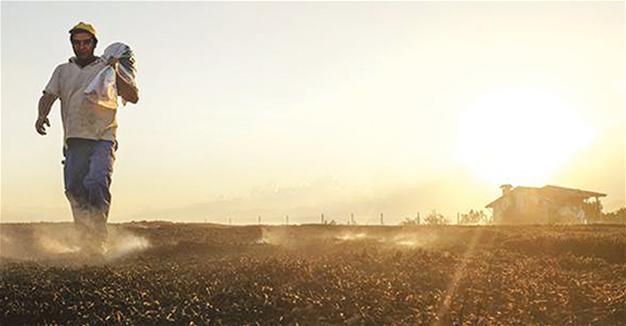European bank’s support for Turkish agriculture hits 1 bln euros
ISTANBUL
 The European Bank for Reconstruction and Development’s (EBRD) support for Turkish agriculture has now exceeded 1 billion euros, the bank announced in a press statement April 12.
The European Bank for Reconstruction and Development’s (EBRD) support for Turkish agriculture has now exceeded 1 billion euros, the bank announced in a press statement April 12. The EBRD, a leading institutional investor in Turkey, has financed over 32,000 agricultural businesses across the country, according to the statement.
Turkey is the world’s seventh-largest agricultural producer and a major exporter. Agricultural production is a key sector for the Turkish economy and accounts for 20 percent of the country’s employment. It is essential for economic growth and rural development.
“The EBRD has passed an important milestone in Turkey,” said Jean-Patrick Marquet, the EBRD’s managing director for Turkey. “The bank’s financing worth over 1 billion euros – provided directly and through Turkish banks – has benefited tens of thousands of agricultural businesses, often in some of the most remote areas of Turkey. It has created employment, enhanced competitiveness and boosted economic growth.”
To date, the EBRD has provided over 500 million euros in direct financing to almost 30 companies, ranging from family-owned businesses such as pulses and rice producer Yayla Agro and soft-drinks maker Uludağ to large industry players such as commodities processor Tiryaki (in which the bank is a shareholder), according to the statement.
In addition to direct lending, the EBRD has partnered with nine Turkish banks – Akbank, Denizbank, Garantibank, İşbank, Şekerbank, TEB, TSKB, Vakıfbank and Yapı Kredi – to channel financing worth 600 million euros through the lenders’ countrywide networks, it added.
The partnership has helped the EBRD reach micro, small and medium-sized enterprises across Turkey, especially in the agricultural southeast and has encouraged commercial banks to prioritize lending to agricultural clients and develop new ways to better meet their needs.
















